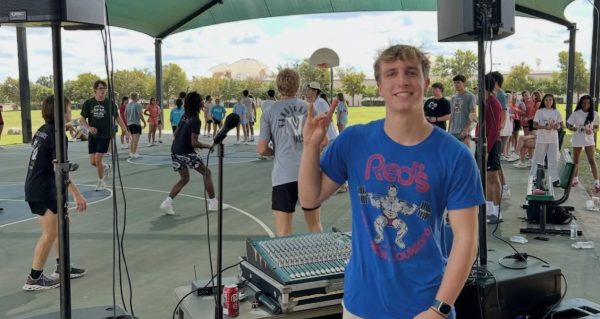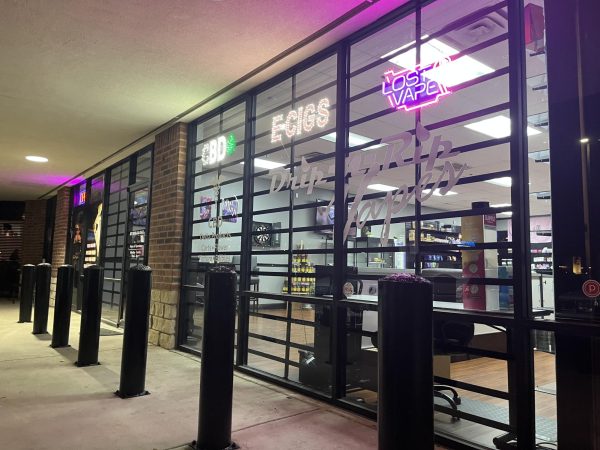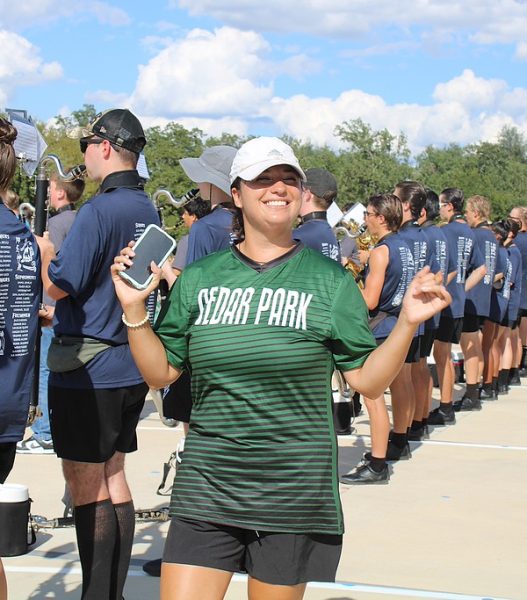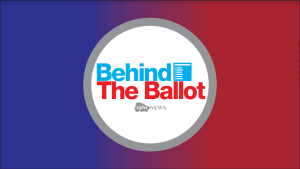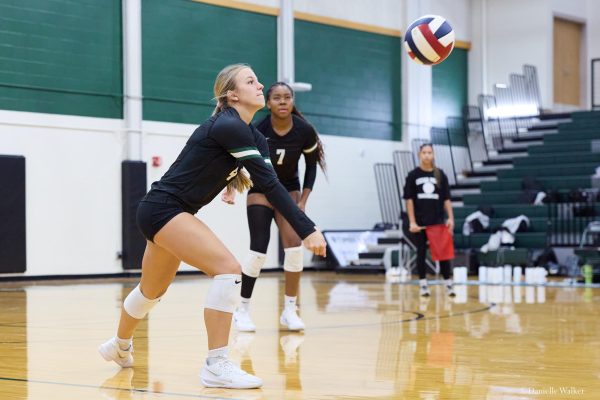Tired of Being Tired?
Not Getting Enough Sleep can Harm Health, School Work
Walking through the halls or in classrooms, students are constantly catching up on their sleep.
November 29, 2018
Lack of sleep is a common problem among students and adults according to studies by the American Sleep Apnea Association (ASAA). They reported that 25 percent of adults report troubles sleeping 15 out of every 30 days. With high schoolers, the studies said that only 30 percent of students claim that they get the required eight to 10 hours of sleep every night. There are a little over 15 million high schoolers in America, meaning about eight million high school students lack sufficient sleep hours.
Cami Jenschke, human geography teacher and softball coach, said that students with better sleep are more successful.
“If you come in well rested, your attitude is better, you’re more alert, and you’re more likely to participate in class and do better,” Jenschke said. “I attribute their lack of participation and their lack of enthusiasm to a lack of sleep.”
There is no scientific answer as to why so many people do not get enough sleep, but Jenschke said that she has an idea of the biggest reason.
“I think the kids would blame it on homework, but I think that’s not always the case,” Jenschke said. “I think a lot of times, it’s a combination of poor time management on their behalf.”
Jenschke said that she thinks students should be making a dent in their large amounts of homework during their daily 45 minute study hall period.
“I think DEN is a crucial piece to this puzzle, it’s almost an hour of your life you can have back after school, so I think it’s reasonable for kids to get their homework done,” Jenschke said.
From a medical perspective, the key to getting more sleep may be more obvious. Nurse Tarajo Frost said that digital distractions often keep people awake.
“I think having a basic schedule that you stick to every night about your sleep time and the rituals that you go through to go to bed [are important],” Frost said.
Research from Cnet shows that television viewing, computer-game playing, internet use and other stimulating activities before going to bed will cause problems falling asleep.
“Shut off all your media stuff 90 minutes before you go to bed,” Frost said. “Before you go to sleep, pick up a good book and read. Seeing the blue lights on the computer screens stimulate the retina so that it can’t shut down and go to sleep right away.”
Studies from NIH said that getting sleep is necessary for everyday life, and can help fight off infection and prevent diabetes. A lack of sleep is also tied to heart disease, high blood pressure, obesity and in serious cases, death.
“As a nation, we are way distracted in a lot of parts in our lives, whether it be on our phones, whether it be playing a game before we go to bed, whether it be watching a TV show before we go to bed or binging on our Netflix before we go to bed,” Frost said. “All those things create a health hazard for us, because our basic premise of our health starts with our sleep. If we aren’t sleeping well, then the whole system breaks down. I think if everyone got more sleep, then everything would look a whole lot more different.”

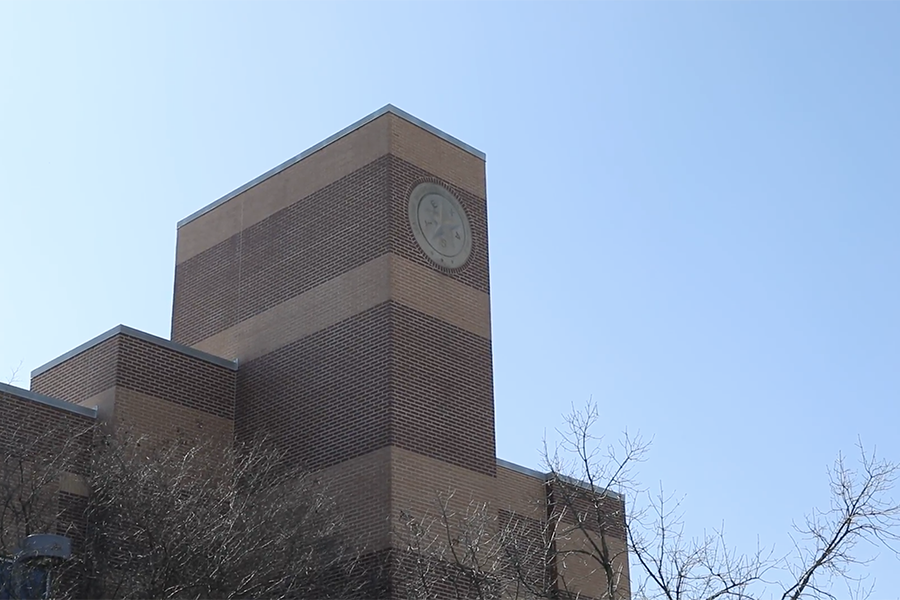

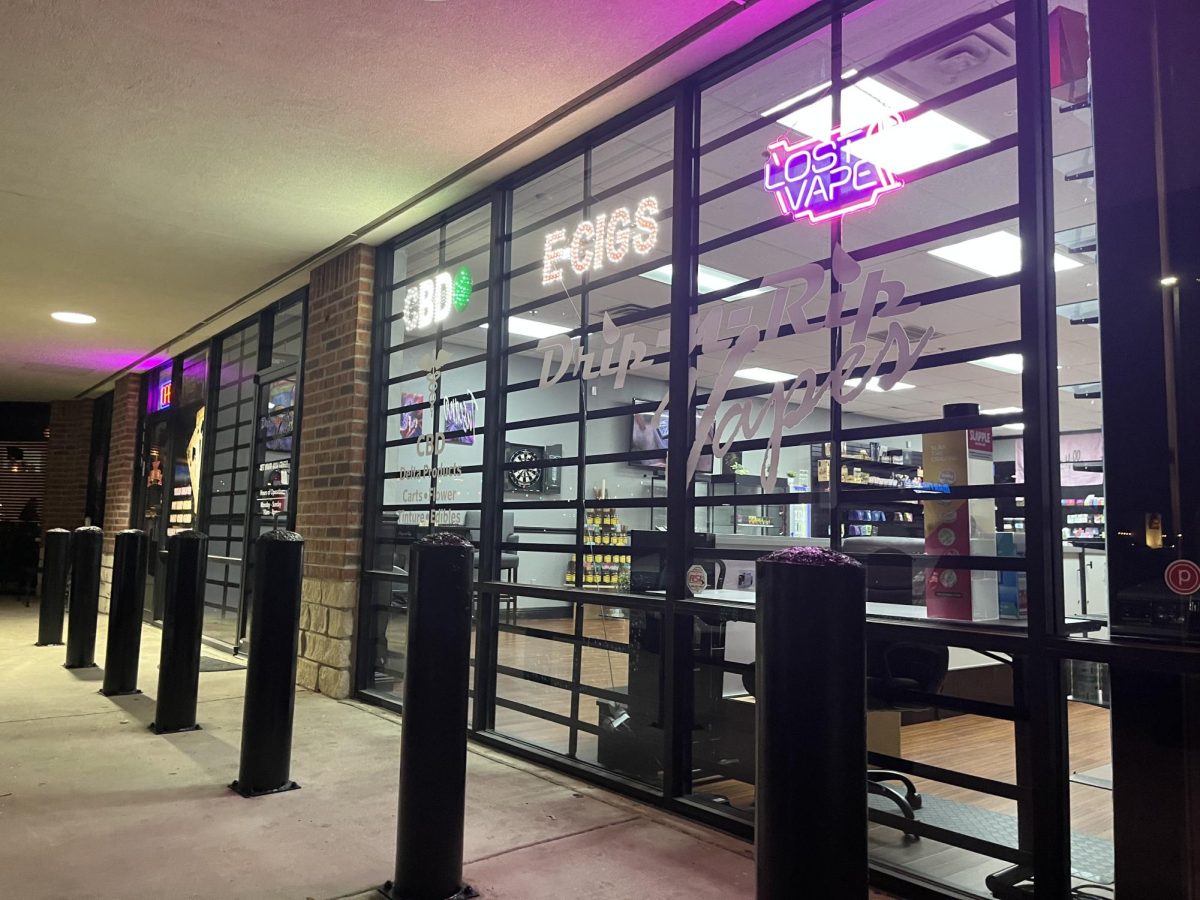

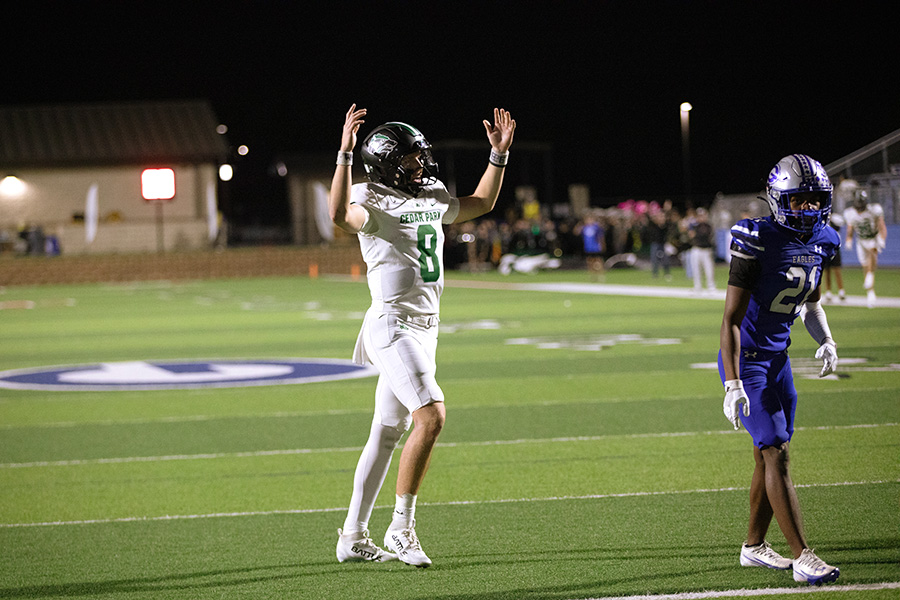
![Senior Jett Mckinney stores all the clothes in his own room, with half of it stored in his closet along with his personal clothes, and the rest taking up space in his room.
“There’s been times [when] there’s so much clothing stored here and it gets overwhelming, so I end up having to sleep somewhere else in the house,” Mckinney said.](https://cphswolfpack.com/wp-content/uploads/2025/11/DSC_0951-1200x800.jpg)



![Broadcast, yearbook and newspaper combined for 66 Interscholastic League Press Conference awards this year. Yearbook won 43, newspaper won 14 and broadcast took home nine. “I think [the ILPC awards] are a great way to give the kids some acknowledgement for all of their hard work,” newspaper and yearbook adviser Paige Hert said. “They typically spend the year covering everyone else’s big moments, so it’s really cool for them to be celebrated so many times and in so many different ways.”](https://cphswolfpack.com/wp-content/uploads/2025/05/edited-ILPC.jpg)




![Looking down at his racket, junior Hasun Nguyen hits the green tennis ball. Hasun has played tennis since he was 9 years old, and he is on the varsity team. "I feel like it’s not really appreciated in America as much, but [tennis] is a really competitive and mentally challenging sport,” Nguyen said. “I’m really level-headed and can keep my cool during a match, and that helps me play a bit better under pressure.” Photo by Kyra Cox](https://cphswolfpack.com/wp-content/uploads/2025/09/hasun.jpg)

![Bringing her arm over her head and taking a quick breath, junior Lauren Lucas swims the final laps of the 500 freestyle at the regionals swimming competition on date. Lucas broke the school’s 18-year-old record for the 500 freestyle at regionals and again at state with a time of 4:58.63. “I’d had my eye on that 500 record since my freshman year, so I was really excited to see if I could get it at regionals or districts,” Lucas said. “ State is always a really fun experience and medaling for the first time was really great. It was a very very tight race, [so] I was a bit surprised [that I medaled]. [There were] a lot of fast girls at the meet in general, [and] it was like a dogfight back and forth, back and forth.” Photo by Kaydence Wilkinson](https://cphswolfpack.com/wp-content/uploads/2025/03/Kaydence-2.7-23-edit-2.jpg)
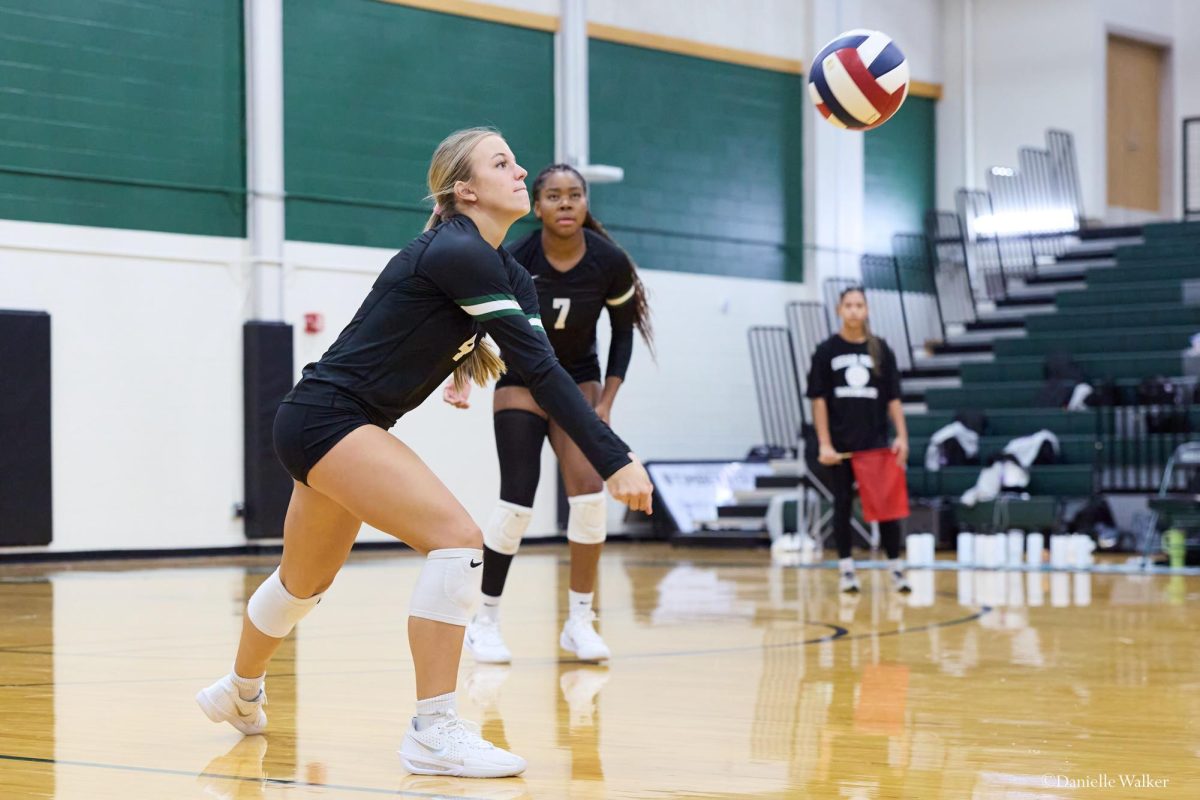

![As her hair blows in the wind, senior Brianna Grandow runs the varsity girls 5K at the cross country district meet last Thursday. Grandow finished fourth in the event and led the varsity girls to regionals with a third place placement as a team. “I’m very excited [to go to regionals],” Grandow said. “I’m excited to race in Corpus Christi, and we get to go to the beach, so that’s really awesome.” Photo by Addison Bruce](https://cphswolfpack.com/wp-content/uploads/2025/10/brianna.jpg)















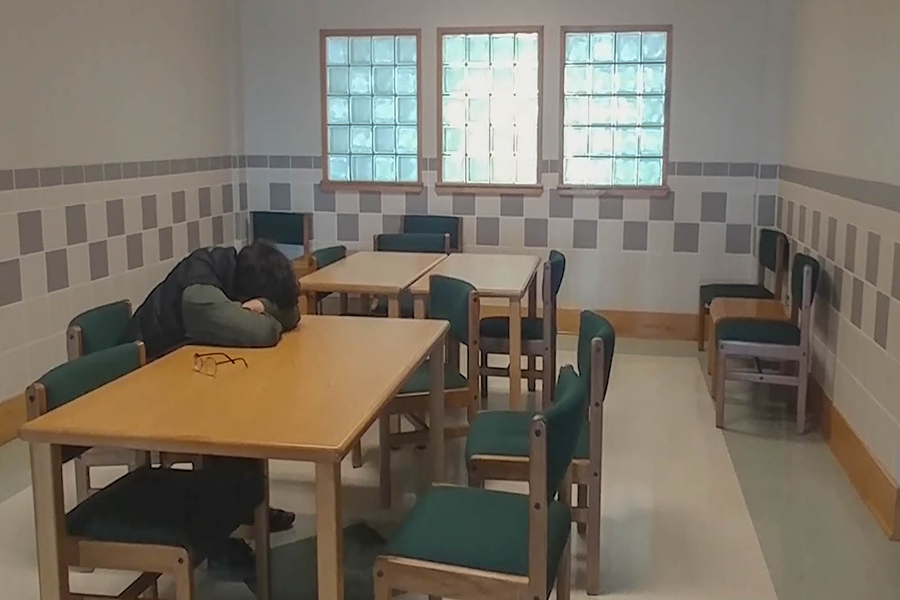
![Holding a microphone, baseball booster club president Chris Cuevas announces the beginning of the annual cornhole tournament. The event has been held for the past two years and is designed to raise money for the baseball program in a fun way. “We’re a baseball team, so people love to compete,” Cuevas said. “So we figured we better do something that gets [their] attention. They want to compete. It’s not a hard sport to do, and we have all different [skill] levels [of participants].” Photo by Henry Mueller](https://cphswolfpack.com/wp-content/uploads/2025/11/Henry-715-1200x900.jpg)


